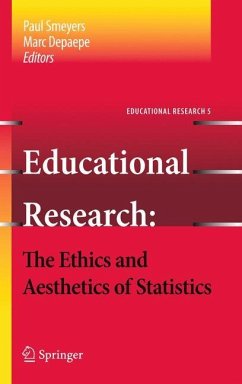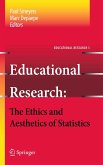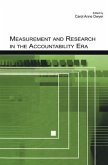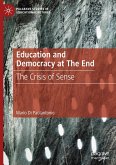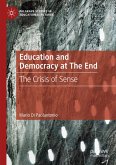Statistics are everywhere. Their power and their undoubted efficacy in many areas have given rise to faith in measurement and metrics. More of them will tell us all that we need to know. Their use carries with it a number of presuppositions: that reality can be satisfactorily represented and that it can be controlled or the risks managed. The papers in this book interpret the ethics and aesthetics of statistics in terms of representation, visualisation and accessibility, focus on the appeal of 'simplicity', of technical languages, numbers, diagrams and pictures, and pay attention to their connection with action plans. The book explores what has made educational researchers dependent on statistics, and deals with their use in areas such as the prevalence of maltreatment of children, European citizenship, well-being and happiness, illegal migrants, and university expansion. There is discussion of how the quest for more and better statistics finds its voice in policy initiatives that become slogans, and how public opinion polls are used to rationalise political decision-making. Can a more limited and modest use be made of statistics which does not deflect attention away from education's core business and which does not destroy the local practical knowledge that on which good education is based?'Smeyers and Depaepe continue to bring together a significant international group of educational philosophers and historians on topics of importance to researchers. This fifth volume in their series takes up the 'gold standard' use of statistics in case studies not contributed elsewhere. I highly recommend this text to counter a current over-emphasis on technique in research methodology. Use of statistics remains but herein under new, insightful conceptualizations.'Lynda Stone, Philosophy of Education, University of North Carolina at Chapel Hill, USA'Once again, Depaepe and Smeyers succeeded in bringing together distinguished international andcross-disciplinary scholars exploring very timely and critical issues in current educational research. This is a groundbreaking book on a theme that can't be ignored by educational researchers and those interested in a better understanding of the culture of science and science as culture. Moreover, the present book instigates to study history of educationalresearch, a limited but developing field, and invites reflection to those who are sometimes too reliant on number crunching as a mode of interpretation and rather credulous in the acceptance of institutional records.Frank Simon, Faculty of Psychology and Educational Sciences, Ghent University, Belgium
Bitte wählen Sie Ihr Anliegen aus.
Rechnungen
Retourenschein anfordern
Bestellstatus
Storno

